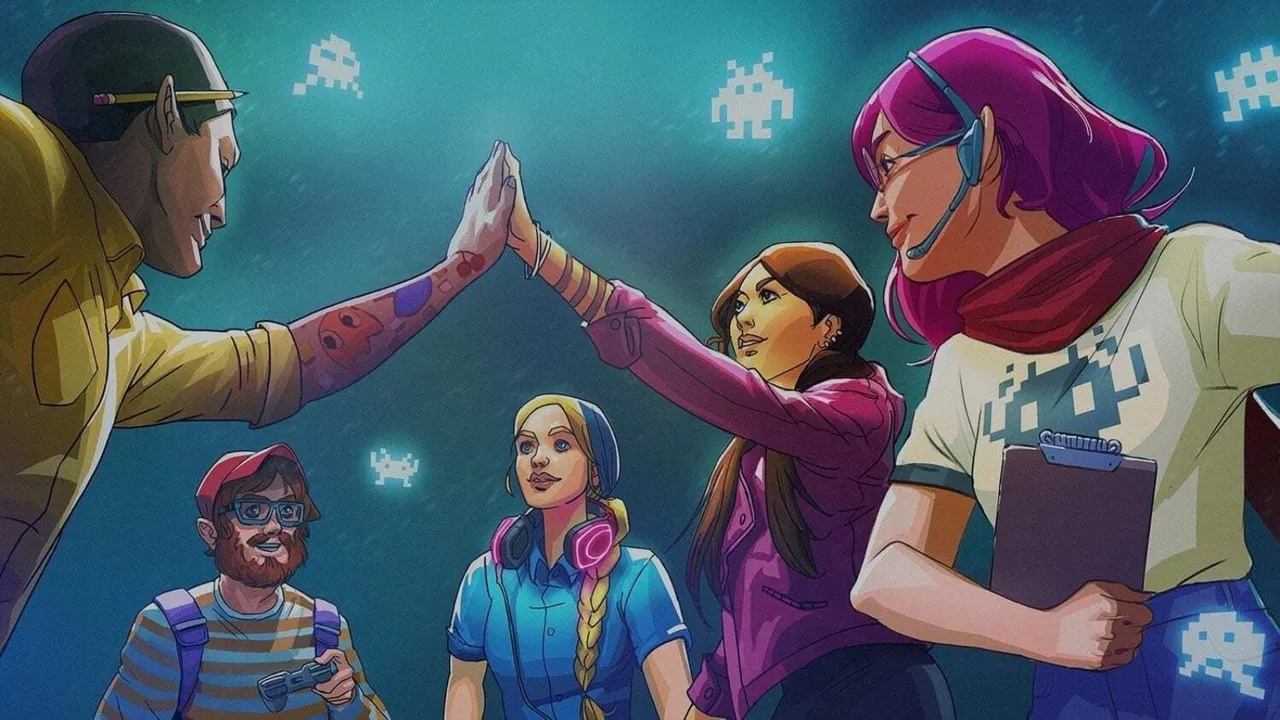Game Design Jobs in the Video Game Industry: An Overview

Introduction
At the heart of the video game industry are the game designers who shape the immersive and engaging experiences that captivate players worldwide. These professionals work in various areas, such as level design, narrative design, combat design, mission design, monetization design, multiplayer design, sound design, systems design, and technical design, to create compelling and enjoyable games. This article explores the diverse game design roles available in the video game industry, the qualifications required, and the skills needed to excel in these creative positions.
Level Design: Crafting the Virtual Worlds that Players Explore
Level designers are responsible for creating the virtual environments that players explore in video games. They must have expertise in spatial design, pacing, and storytelling, as well as a deep understanding of game mechanics and player behavior. A degree in game design, architecture, or a related field can be beneficial, but practical experience in level design, particularly within the gaming industry, is often more important for securing a job.
Check out all of the level design roles we have hiring on Hitmarker here or do a deeper dive into what it takes to become a level designer here.
Narrative Design: Weaving Engaging Stories and Characters
Narrative designers are responsible for crafting the stories and characters that bring video games to life. They must have strong writing and storytelling skills, as well as a deep understanding of game mechanics and player engagement. A degree in creative writing, screenwriting, or a related field can be beneficial, but practical experience in narrative design, particularly within the gaming industry, is often more important for securing a position.
Narrative design job vacancies live here on the Hitmarker platform. You can also do a deeper dive into what it takes to become a narrative designer here.
Combat Design: Creating Thrilling and Balanced Combat Experiences
Combat designers are responsible for designing and balancing the combat systems in video games, ensuring that they are fun, engaging, and challenging for players. They must have expertise in game mechanics, player behavior, and balancing, as well as a deep understanding of gaming culture. A degree in game design or a related field is typically required, along with practical experience in the video game industry.
If combat design is your area, you can see all of the relevant vacancies by clicking here. You can also do a deeper dive into what it takes to become a combat designer here.
Mission Design: Crafting Memorable and Exciting Gameplay Objectives
Mission designers are responsible for creating the gameplay objectives and scenarios that drive player engagement in video games. They must have expertise in game mechanics, storytelling, and pacing, as well as a deep understanding of player behavior. A degree in game design or a related field can be beneficial, but practical experience in mission design, particularly within the gaming industry, is often more important for securing a job.
Take a look at all of our mission design vacancies by clicking here. You can also do a deeper dive into what it takes to become a mission designer here.
Monetization Design: Developing Effective and Ethical In-Game Revenue Strategies
Monetization designers are responsible for creating in-game revenue strategies, such as microtransactions, downloadable content, and subscription models, that are both effective and ethical. They must have expertise in game mechanics, player behavior, and economics, as well as a deep understanding of gaming culture. A degree in game design, economics, or a related field can be beneficial, but practical experience in monetization design, particularly within the gaming industry, is often more important for securing a position.
Every monetization design vacancy can be found on Hitmarker at this link. You can also do a deeper dive into what it takes to become a monetization designer here.
Multiplayer Design: Crafting Engaging and Balanced Online Experiences
Multiplayer designers are responsible for designing and balancing the online components of video games, ensuring that they provide enjoyable and fair experiences for players. They must have expertise in game mechanics, player behavior, and networking, as well as a deep understanding of gaming culture. A degree in game design or a related field is typically required, along with practical experience in the video game industry.
If a multiplayer design role is currently hiring, you’ll find it here. You can also do a deeper dive into what it takes to become a multiplayer designer here.
Sound Design: Enhancing the Gaming Experience Through Immersive Audio
Sound designers are responsible for creating the audio elements of video games, such as sound effects, music, and voiceovers, that enhance the overall gaming experience. They must have expertise in audio production, sound editing, and music composition, as well as a deep understanding of gaming culture. A degree in audio engineering, music production, or a related field can be beneficial, but practical experience in sound design, particularly within the gaming industry, is often more important for securing a job.
Check out all of the current hiring sound design opportunities in gaming on this page. You can also do a deeper dive into what it takes to become a sound designer here.
Systems Design: Developing the Rules and Mechanics that Govern Gameplay
Systems designers are responsible for creating the rules and mechanics that govern gameplay in video games, such as character progression, resource management, and AI behavior. They must have expertise in game design, mathematics, and programming, as well as a deep understanding of player behavior. A degree in game design, mathematics, or a related field can be beneficial, but practical experience in systems design, particularly within the gaming industry, is often more important for securing a position.
Have a scout of the current systems design vacancies in the industry at this link. You can also do a deeper dive into what it takes to become a systems designer here.
Technical Design: Bridging the Gap Between Game Design and Programming
Technical designers act as the bridge between game design and programming, ensuring that design concepts are effectively translated into functional gameplay elements. They must have expertise in game design, programming, and scripting languages, as well as a deep understanding of gaming culture. A degree in game design, computer science, or a related field is typically required, along with practical experience in the video game industry.
Every technical design vacancy we have on Hitmarker can be discovered here. You can also do a deeper dive into what it takes to become a technical designer here.
In Summary
Game design jobs in the video game industry encompass a diverse range of creative roles, each playing a critical part in shaping immersive and engaging gaming experiences. While formal education in fields such as game design, computer science, or creative writing can be helpful, practical experience and industry-specific knowledge are often more important for securing a position in these roles.
To excel in game design jobs, professionals must possess strong technical, creative, and communication skills, as well as the ability to adapt to the fast-paced and ever-evolving landscape of the video game industry. Networking, attending industry events, and staying informed about the latest trends and developments can help individuals build connections and stay competitive in this dynamic sector.
As the video game market continues to expand, the demand for skilled game designers will remain strong. By honing their skills and staying up-to-date with industry advancements, these individuals can find rewarding careers that contribute to the overall success and growth of the video game industry.
We usually have a few hundred game design vacancies on Hitmarker, click here to see them all. And, if you're not done learning, why not jump in to our "Complete Guide to Becoming a Video Game Designer" here?
-
 Landing a Summer Internship in the Video Game Industry: The Ultimate Quick Guide
Landing a Summer Internship in the Video Game Industry: The Ultimate Quick Guide -
 Entry-level Jobs in the Video Game Industry: The Ultimate Guide
Entry-level Jobs in the Video Game Industry: The Ultimate Guide -
 Junior-level Jobs in the Video Game Industry: The Ultimate Guide
Junior-level Jobs in the Video Game Industry: The Ultimate Guide -
 Intermediate-level Jobs in the Video Game Industry: The Ultimate Guide
Intermediate-level Jobs in the Video Game Industry: The Ultimate Guide -
 Senior-level Jobs in the Video Game Industry: The Ultimate Guide
Senior-level Jobs in the Video Game Industry: The Ultimate Guide -
 Getting into gaming: Strategies for landing your first game development job with Katherine Mould of Keywords Studios
Getting into gaming: Strategies for landing your first game development job with Katherine Mould of Keywords Studios -
 Art and Animation Jobs in the Video Game Industry: An Overview
Art and Animation Jobs in the Video Game Industry: An Overview -
 Business Operations Jobs in the Video Game Industry: An Overview
Business Operations Jobs in the Video Game Industry: An Overview -
 Communications and Marketing Jobs in the Video Game Industry: An Overview
Communications and Marketing Jobs in the Video Game Industry: An Overview -
 Content Creation Jobs in the Video Game Industry: An Overview
Content Creation Jobs in the Video Game Industry: An Overview -
 Game Design Jobs in the Video Game Industry: An Overview
Game Design Jobs in the Video Game Industry: An Overview -
 Game Development Jobs in the Video Game Industry: An Overview
Game Development Jobs in the Video Game Industry: An Overview